Every new product Apple unveiled last week has ignited vocal, public derision from a series of threatened competitors, including Samsung, luxury watch maker LVMH and PayPal. However, their attempts to direct attention away from Apple may likely backfire, just like earlier attempts to demonize Siri, Maps, iCloud and Touch ID.
PayPal: we will handle Apple Pay, so don't trust us
Yesterday, online payment firm PayPal published a full page ad clearly implying that Apple Pay might not be secure because photos were stolen from celebrities.
The company's implied allegation stopped short of actually saying that PayPal believed that Apple's iCloud service was exploited (because it wasn't), or that there were any connection between iCloud and Apple Pay (there isn't).
In fact, Apple doesn't even actually handle banking transactions in Apple Pay; it is supplying the hardware and software that enable existing banking institutions and credit card processors to upgrade the level of security they provide for their existing credit and debit card customers.
If PayPal actually believed that Apple's payment system was insecure and put users at risk, it would be hard to understand why PayPal's subsidiary Braintree (which also owns Venmo) raced to assure its customers the day after Apple Pay was announced, "we are fully capable of processing Apple Pay transactions should you choose to accept Apple Pay in your app. This means that merchants who currently use Braintree for their payment processing can rest assured that Apple Pay will work with Braintree."
Rather than describing Apple Pay as some insecure mess, Braintree's Bill Ready explained that Apple's new system uses 'well-known' security practices, explaining, "Apple Pay consists of two key elements: support for merchants and payment processors to process Apple Pay transactions via tokenization, and a consumer wallet experience for native iOS apps.
"First, let's cover the payment processing. Tokenization is a well-known approach in the payment space where information such as credit card numbers are hidden by tokens that protect sensitive information. We have many years of experience processing such transactions with the wide array of processing partners we support, which includes most of the major platforms Apple suggests."
He then concluded by staying, "Apple Pay is exciting for mobile commerce. Braintree is here to help you support Apple Pay in addition to the other global payment experiences you need for your business to thrive on iOS, Android, and the web."
Less than a week later, PayPal attempted to resurrect pre-event fear-mongering orchestrated to cast a shadow over Apple's cloud services. That caught the attention of
Keith Rabois, a senior investment partner who previously served as a senior executive at PayPal. His initial reaction was to ask if the PayPal ad was the "Dumbest campaign ever?"
Dumbest ad campaign ever? http://t.co/LZo3jY1O4s
— Keith Rabois (@rabois) September 16, 2014He followed up with a series of "quiz" tweets asking, "Which company suffers more account take-overs via phishing and other abuses, Apple or PayPal?" then "Is Apple more capable of destroying PayPal w/ advertising (and $30 b annual profits) or PayPal ads inflict damage on Apple?" then "Does PayPal or Apple still have LIVE webpages coded in 1999 that have not been upgraded security wise?" and "Who has a brand that Americans love and who has a brand Americans dislike?"
Ironically, the most vulnerable 1999 webpages LIVE at PayPal today relate to password recovery flows.
— Keith Rabois (@rabois) September 16, 2014"Ironically, the most vulnerable 1999 webpages LIVE at PayPal today relate to password recovery flows," he added.
Perhaps PayPal just doesn't know what different parts of its various companies are doing. Last fall, my seldom used eBay account was exploited, resulting in weekly charges of $84.99 hitting my PayPal account three times, each debited from my attached checking account. Resolving the issue between the two companies (both operated by PayPal) was a hassle and dragged on for a week before the unauthorized charges were eventually reversed.
PayPal's unflattering history in dealing with fraud and in creating frustrating problems of its own for its users was extensive enough for The Verge to turn into an article. Although the author continued to malign Apple over iCloud without offering any supporting evidence, he also cited repeated events where PayPal had actually shut down users' accounts in error or failed to address serious security issues identified by researchers.
Samsung: we mock the company we slavishly copy
PayPal's advertising tactic drew more than a few comparisons to Samsung, which has been publishing ads attacking Apple and its users for years, even as it has slavishly copied every facet of the iPhone, iPad and iOS.
This year, Samsung released a new batch of ads, including one that claimed the "leads-by-following" company's Galaxy Note product is "more innovative" because it does stylus handwritten recognition like Apple's Newton Message Pad from 1994, and "more fun" because it can run an Android port of a DJ app that originated on iOS.
The ad targets Apple's iPhone 6 Plus as being late to the phablet party that Samsung launched in 2011. The spot, along with others similarly mocking Apple, is voiced by Neal Brennan, a standup comic and co-creator of "The Chapelle Show" (for which he was nominated for three Emmys).
Samsung has no problem paying entertainers and athletes money to stand next to their products, but that doesn't mean they actually use Samsung's stuff. LA Weekly wrote earlier this year that Brennan is "constantly creating and updating numerous sketch/sitcom/stand-up idea lists on his iPhone," and that "Brennan and Dave Chappelle text and FaceTime" between their performances together.
FaceTime doesn't work on the Galaxy Note, so even if Samsung gave Brennan its his free phones and tablets, he'd still need to use his actual iPhone. In fact, when Brennan was featured in a series of photographs of notable comics by photographer Luke Fontana, he happened to be captured holding his iPhone (the only comic in the series holding any piece of technology).
Samsung seems to have a really hard time finding notable people to pay to use its products who actually use its products, even after it pays them (as it did with Ellen DeGeneres at the Oscars, as well as athletes David Beckham, Franz Beckenbauer and David Ferrer).
In August, Samsung had Maroon 5 singer Adam Levine help launch its Milk Music service, where he suggested having an "iPhone burning." Yet last week Levine tweeted that his friends from "The Voice" would be on... "the Ellen Show" from ... his iPhone, just prior to performing at the iTunes Festival.
LVMH mocks Apple Watch, then says we "must not copy it," "cannot afford to just follow"
At the other end of the spectrum, Jean-Claude Biver, the head of LVMH's TAG Heuer luxury watch brand, immediately complained to the Telegraph UK that Apple Watch "has no sex appeal. It's too feminine and looks too much like the smartwatches already on the market."
Days later, he told Swiss paper NZZ am Sonntag that "we want to launch a smartwatch at TAG Heuer, but it must not copy the Apple Watch," adding simply, "We cannot afford to just follow in somebody else's footsteps."
While Biver couldn't quite align a coherent statement of whether he thought Apple Watch was a terrible design or, alternatively, challenging to copy in way that didn't give the appearance of being like Samsung, other luxury watch talking heads insisted that Apple's watch was "too masculine," rather than being "too feminine" or alternatively having "no sex appeal" at all.
While Apple didn't attach any gender roles to either the sizes or models of the Apple Watch it showed off last week, it did commission a series of photographs that depict it begin worn by both men and women, none of whom appear to be lacking sufficient appeal or fearful of the sexuality emanating from their watch.
This all happened before
Competitors' fears being expressed through nervous laughter directed at Apple are nothing new. The company has had every one of its blockbuster new product categories scoffed at by the companies who were about to be run over by them, including Microsoft, Blackberry, Palm and Nokia scoffing at the iPhone.
After Apple released Siri, Andy Rubin, the head of Android development at Google, insisted that he didn't "believe that your phone should be an assistant" like Siri, while Microsoft's Andy Lees of WP7 was quick to say he didn't think the new service was "super useful," indicating his company would avoid having its users speak commands to their phones in public. Both companies subsequently turned around and copied Siri.
Microsoft, last to the voice assistant party, is now scoffing at Apple's Siri again. Ironically, nobody is actually using Windows Phone, not even the voice actress Microsoft hired to speak its Siri-impersonating voice. Just like Samsung's celebrities, Jen Taylor uses an iPhone, too.
When Apple showed off its own Maps, Google helped orchestrate a campaign of doubt and ridicule, even allowing its Motorola subsidiary to fake an address for a mocking online ad campaign. Within the first year, Google lost a huge number of Maps users, with data from app analytics firm comScore indicating that Google retained less than a third of the iOS Maps audience it once dominated exclusively.
iCloud has similarly been scoffed at by rival cloud services, but Apple now has extremely high adoption with its iOS and Mac users after building far more useful and innovative services into iCloud than third party services can in many cases even offer (including Safari bookmarks and Reading List sync; Find My Phone and new Continuity features in iOS 8 and OS X Yosemite).
Last year, critics immediately jumped on Touch ID, claiming that it could be easily bypassed by a team of experts equipped with high resolution scans of a user's fingerprints. Henry Blodget of Business Insider notoriously called Touch ID "an irrelevant gimmick" before it shipped.
However, that scoffing didn't stop users from seeing immediate convenience in the feature once it became available. This summer, Apple's chief executive Tim Cook stated that 83 percent of iPhone 5s users were now actually setting up Touch ID passcodes and securing their phones (an improvement over the fewer than half that were doing so prior to Touch ID).
As a result, law enforcement reported a significant reduction in device thefts they attributed to iOS 7's passcode-activated Activation Lock.
Lawmakers in Minnesota and California were so impressed with the results that they passed laws forcing Google, Samsung, Motorola, Blackberry, Microsoft and Nokia to copy Apple's lead in securing users' phones or face the loss of significant markets.
Perhaps Apple is having the last laugh.
 Daniel Eran Dilger
Daniel Eran Dilger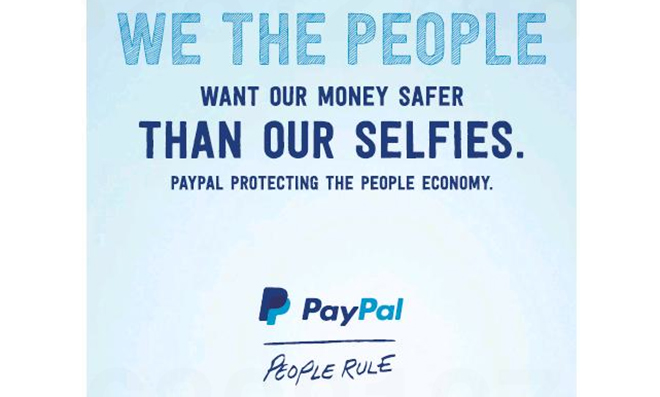
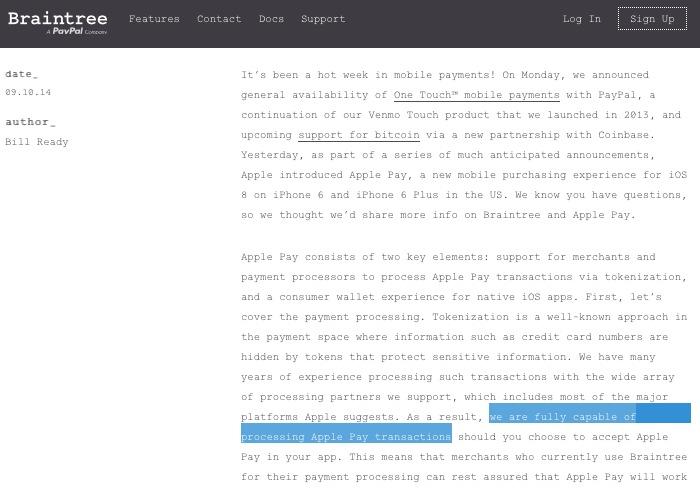
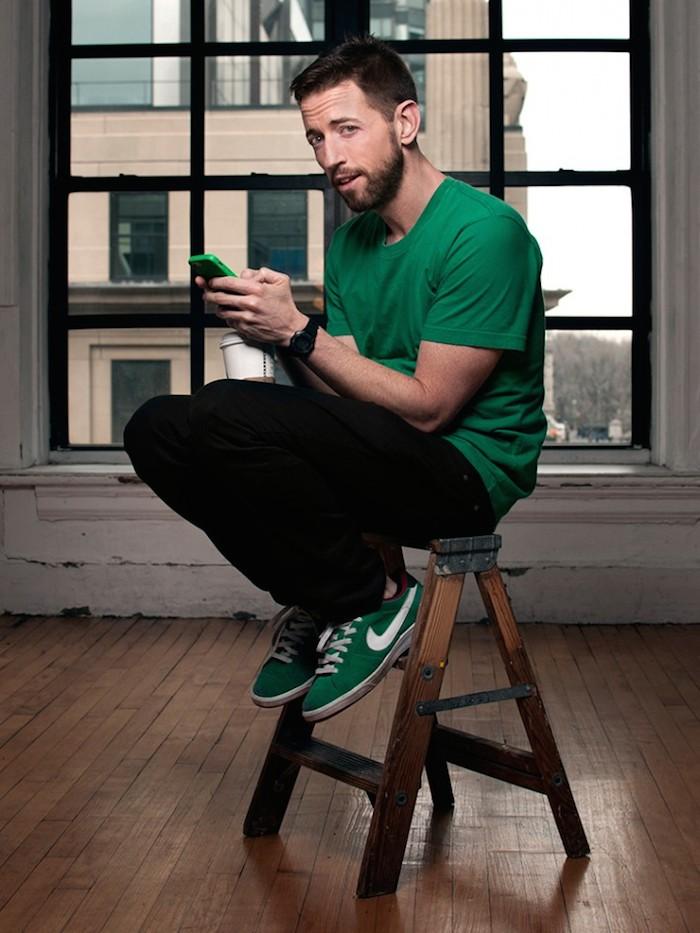
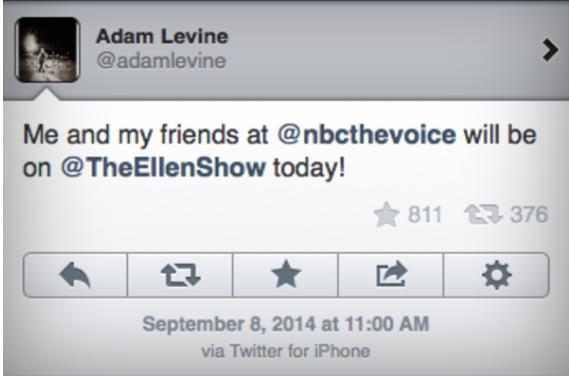
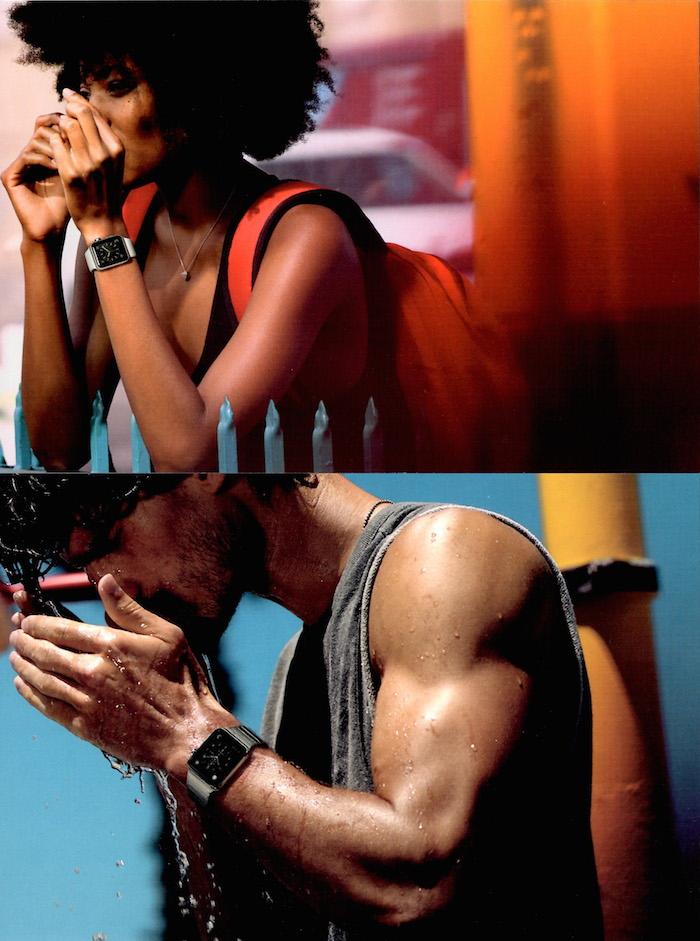
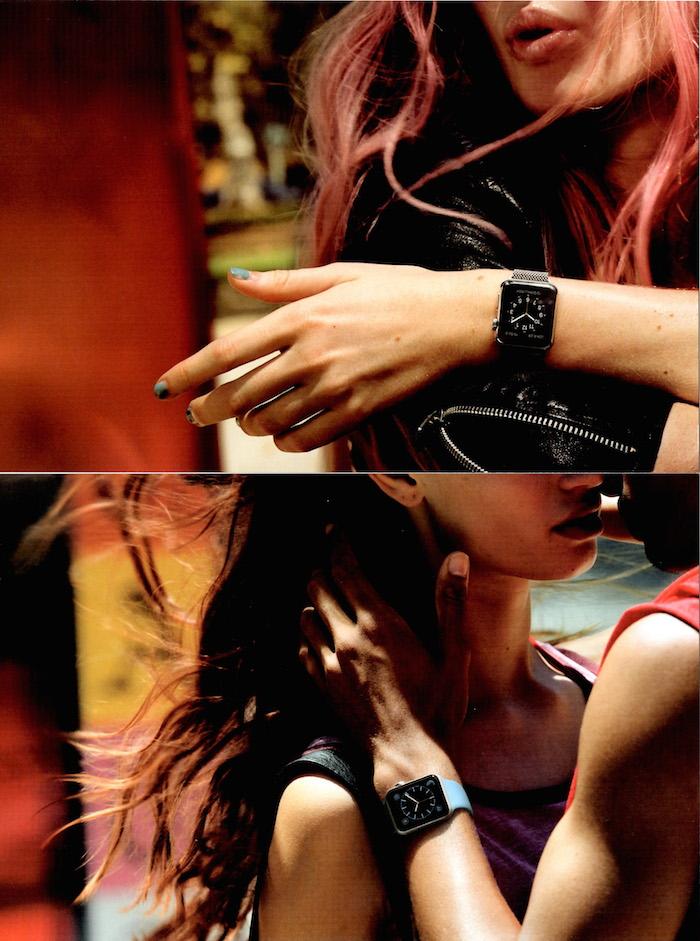



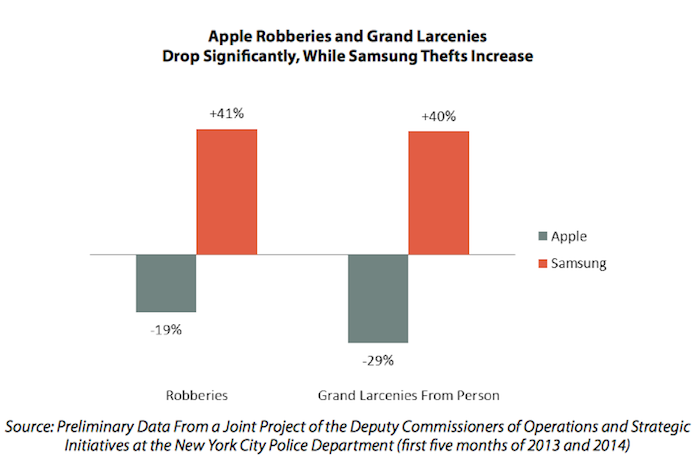







-m.jpg)






 Wesley Hilliard
Wesley Hilliard
 Malcolm Owen
Malcolm Owen
 Andrew Orr
Andrew Orr
 William Gallagher
William Gallagher
 Sponsored Content
Sponsored Content
 Christine McKee
Christine McKee

 Thomas Sibilly
Thomas Sibilly
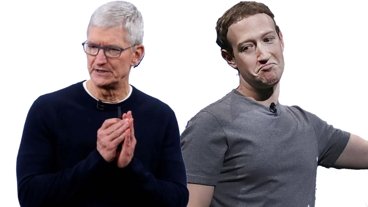





99 Comments
Truest article title DED has ever written. Didn't justify the length of the piece though.
I remember how they laughed at the iPhone...
And the Mac. And the iPod. And the iPad.
[B]Apple[/B]: [I]"We are not in the business of collecting your data."[/I] - Eddie Cue, 9/9/2014 [B]Google[/B]: [nervous fidgeting, crickets chirping ...]
They are all very afraid. Same with Samsung which wasted no time going on then offensive. PayPal is going to lose a lot of money. A lot!